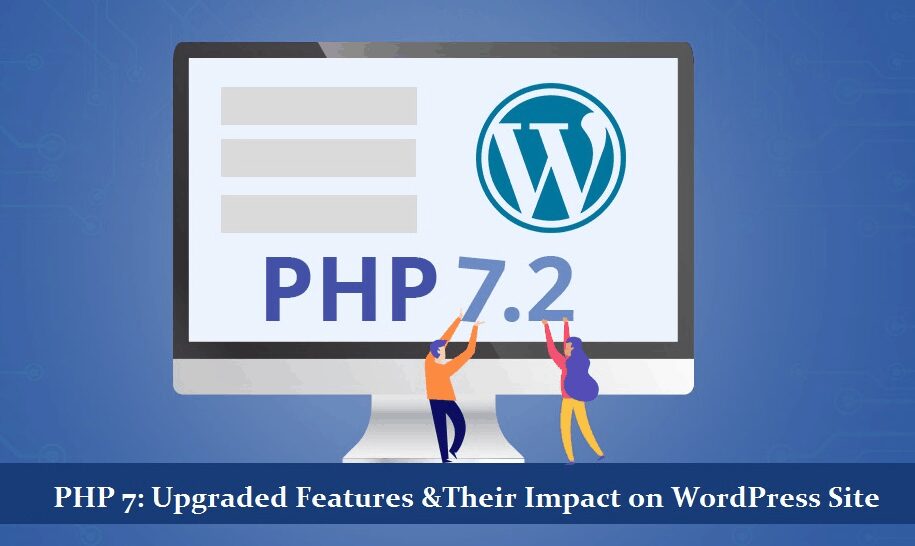PHP is a well-known scripting language on the web. In fact, a majority of the websites that makes use of server-side programming deploys PHP.
PHP 7 is the latest update to the server-side scripting language that is empowering the majority of the internet. In this post, we’ll discuss all the ins and out of this new version of PHP.
What is PHP 7?
PHP 7 was introduced in December 2016 that carries an incredible range of features, such as performance and security upgrades.
So, what’s fresh in PHP 7?
The first and the foremost thing, let’s take a deeper look at some new and advanced features in PHP 7.
-
Performance enhancements
We are versed with the fact that PHP has some performance related issues. But, its latest version is way better in terms of performance.
The bad performance of PHP enforces Facebook to develop HHVM- a virtual machine that helps in maximizing the performance of PHP based application. As the new version is based on the PHPNG project, this boosts the real-world apps and performs efficiently than HHVM.
-
2X Faster than previous versions
PHP 7 is comparatively two times faster than PHP 5.x. It performs the code execution speedily, and needs less servers to tackle the same number of requests per second. For example, the WordPress homepage takes 72% less CPU instructions for executing than earlier. That’s mainly because PHP 7 has a brand new version of Zend engine, which contributes toward the speed enhancement of this language.
-
Strict development standards
PHP 7 needs a higher coding standard in contrast to other older versions. Earlier, there were lack of standardization as well as the custom code with security concerns could slow down your website. Even WordPress allows only compatible plugins and themes in PHP 7.2. So, the developers have to strictly follow the development norms, you don’t have to think about the low-grade performance at all.
How PHP affects a WordPress site?
Although, the core WordPress developers are consistently working to make the CMS ready for PHP 7, as the present version can break your website. Wondering why? Well, it is due to the incompatibility of plugins and themes with PHP 7. WordPress has recommended some theme and plugins author to develop a familiarity with the incompatible changes and fix things in accordance with that.
Since WordPress has already started working on resolving issues associated with PHP 7, the people are taking the best steps to make their themes and plugins compatible with PHP 7.
Points to Consider While Switching from PHP 5 to PHP 7
If you’ve plans to migrate your WordPress website from PHP 5 to PHP 7, then you should follow these best practices that you should adopt for preventing issues at the time of migration.
-
Check out notifications
While doing implementation of PHP update, the hosting providers generally send notifications to the website owners. The main motive for sending is to inform them about the latest updates, so that you could keep an eye if something goes wrong. So, we advise you to continuously check notifications, and make your hosting provider informed if you find any error.
-
Maintain backup of your WordPress site
Even if you’re fully assured of the thing that the PHP update will not hinder your website’s performance, we still suggest you to have a backup plan. Whether you receive the notification from your hosting provider, try to save your your website’s copy on multiple locations. This will surely prevent you from the unforeseen problem that arises during migration.
-
Update everything before migration
Before you make a move from PHP 5 to PHP7, you should never forget updating each and every element of a website. Be it a plugin or a theme, you need to update them well in advance. This will save other elements from stop working after PHP gets an upgrade.
Some concluding thoughts
So, these all are some essential information related to the latest version of PHP. Hopefully you’re impressed with PHP 7 after reading this post, and will definitely do the migration.

About the Author: Tom Hardy
Tom is a PHP expert at Sparx IT Solutions. He possesses immense expertise in developing PHP websites for a diverse mix of businesses. Through his write-ups, he shares wonderful tips to build secure and robust PHP websites.



